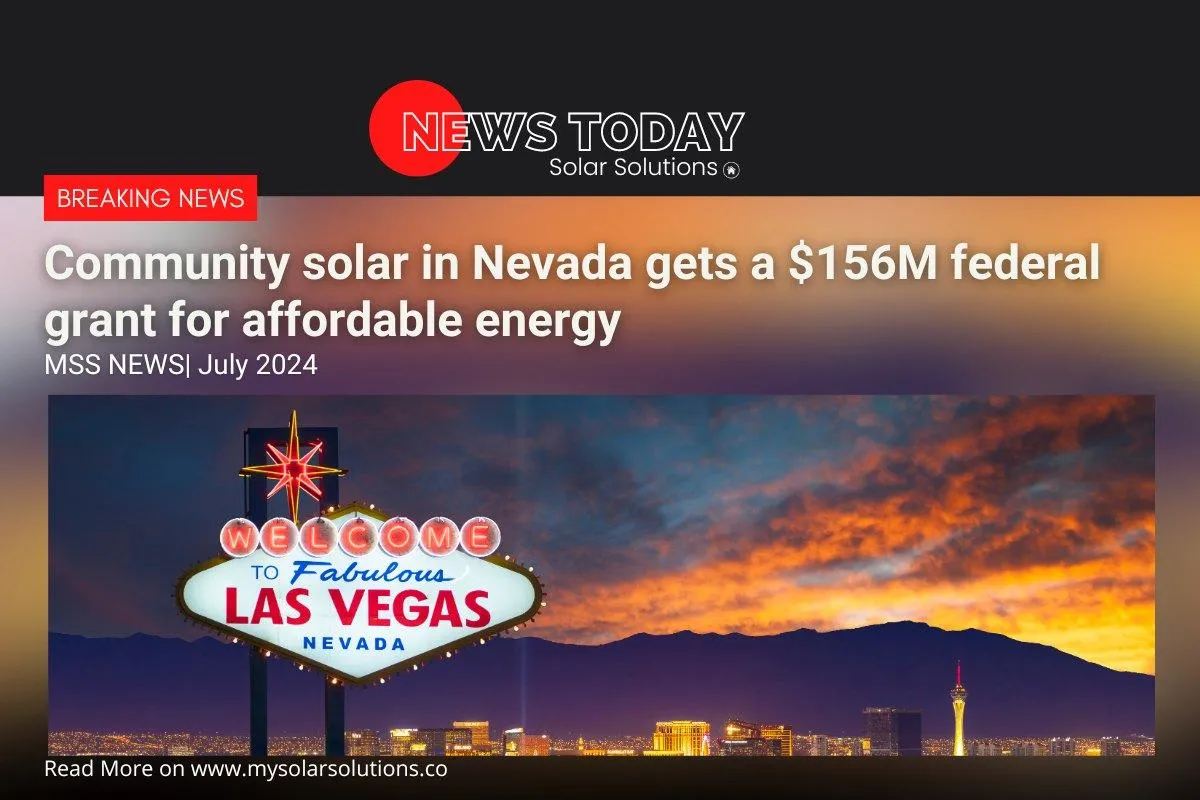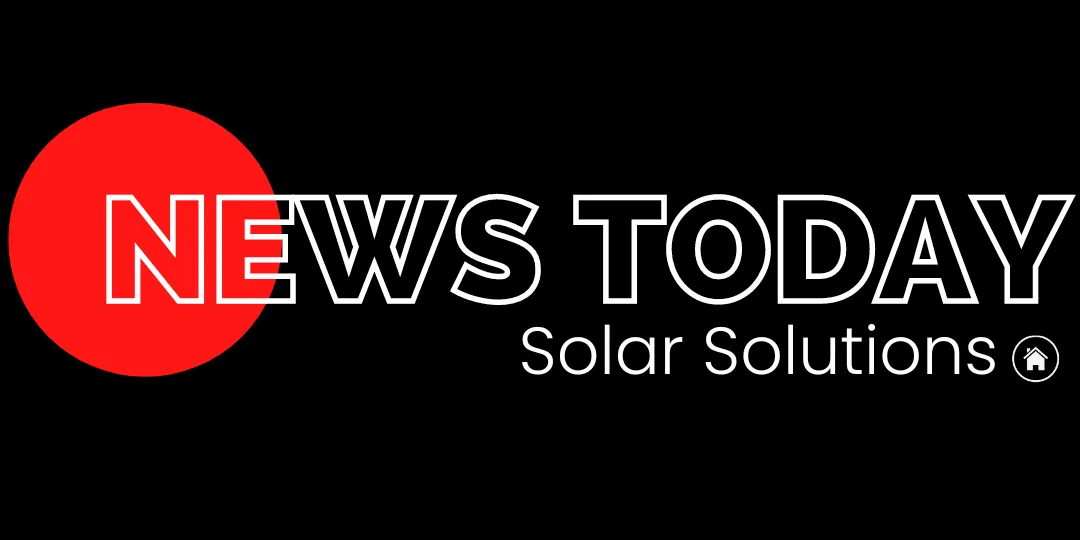NEWS
BREAKING NEWS

Community solar in Nevada gets a $156M federal grant for affordable energy
Introduction to Nevada's Solar Revolution
Community solar isn't just a buzzword—it's a game-changer. Thanks to a hefty $156 million federal grant, Nevada is on the brink of an unprecedented shift toward green energy. This initiative promises to open doors for thousands who previously couldn't afford solar panel installations. Let's delve into this solar breakthrough and explore how it could change lives and reshape energy consumption in Nevada.
The Power of Community Solar
Community solar essentially allows a group of people to benefit from solar power even if they can't install solar panels on their property. Imagine a nonprofit or government building hosting a solar project. Locals can then subscribe to a portion of that energy output at a lowered rate, reducing their electricity bills without handling the heavy and costly installations themselves. It's like your favorite neighborhood market, but for energy!
Why Is It Important?
Community solar breaks down the barriers that kept renewable energy out of reach, especially for low-income households. It democratizes access to sustainable power, giving more people the chance to save money and harness renewable energy. This inclusivity is crucial as historically underserved communities end up paying a larger slice of their income on energy bills. This initiative isn't just a technical innovation; it's social justice in action.
Federal Grant Overview
The environmental saviors at the EPA have doled out $156 million for this cause. But where's this money going? It's all about making solar energy accessible. The grant aims to provide rebates and loans to make solar project costs manageable, covering 30-70% of the installation fees. An affordable bridge to a greener future? We’re on board!
Kristen Stasio’s Vision
Kristen Stasio, CEO of the Nevada Clean Energy Fund, emphasizes the transformation that this grant could bring to impoverished communities. These areas have previously been sidelined in the green energy conversation. By alleviating the energy cost burden, the grant aims to enhance financial stability and sustainability. It’s a chance to level the playing field and ensure everyone can join the solar revolution.
Expanding Beyond Homeowners
Impact on Renters
Got a lease instead of a mortgage? Fret not. This solar movement isn't just for homeowners. Renters, who often feel powerless over household energy choices, can now reap the benefits too. Picture this: solar panels you don’t have to install but can subscribe to for cost savings. Brilliant, right?
Legislative Boost
Before 2021, Nevada laws snubbed apartment dwellers, prohibiting solar rooftop installations. Senate Bill 488 turned the tide, enabling owners of apartments, multi-family homes, and commercial buildings to leverage rooftop solar. No longer are renters stuck on the sidelines of the clean energy field.
Impact on Different Community Sectors
Single-Family Homes
Expect to see more single-family homes glittering with solar panels. Programs under this grant will bring the sun to individual residences, helping families cut down their energy bills sustainably without the wallet strain of upfront costs.
Multi-Family Housing
Affordable multi-family housing developments are also on the radar. Imagine living in a solar-powered apartment where energy savings benefit tenants directly. Lower costs, greener living—what’s not to love?
Nonprofits and Government Buildings
Get ready for community staples like government buildings and nonprofits to host solar projects. The energy output will serve local subscribers, ensuring wider access to solar power within the community.
Schools and Utilities Partnerships
School partnerships might mean students learn under roofs powered by the sun. In addition, collaborations with local governments and utilities aim to maximize the benefits of Solar For All funds, compounded by federal tax credits, ensuring robust project growth and energy savings.
Financial Impact for Households
Economic Savings
The goal? Reduce energy costs by a minimum of 20%. For many households, these savings could mean fewer financial worries and more disposable income for other needs. Savings might even reach higher percentages through additional benefits from combined grant funds and tax credits.
By decreasing the proportion of income spent on energy, families can allocate funds towards education, healthcare, or investments in their future. This initiative fosters financial empowerment and stability.
How to Get Involved
Applying for the Program
Eager to jump in? See if your home or business qualifies , a My Solar Solutions Agent can assist you in navigating these programs.
Local Government Collaboration
Communities can also push local municipalities to engage with the program, ensuring these benefits reach as many people as possible.
Utility Partnerships
Encouraging local utilities to partner in the program can expand its reach and efficacy, maximizing the energy cost savings for consumers.
The Environmental Angle
Reduced Energy Use
With a target of reaching at least 20,000 homes, this initiative promises to cut down Nevada’s overall energy consumption significantly. Imagine the profound environmental impact as we pivot from fossil fuels to renewable energy sources.
Mitigating Climate Change
More solar power means fewer emissions. This shift is a critical step towards mitigating climate change. Nevada is poised to set an example, leading the way for other states to follow suit.
Educating the Public
Through these projects, the public gains more than just financial savings—they also receive education on renewable energy's long-term benefits. Awareness and knowledge spread like sunshine, illuminating minds and fostering a culture of sustainability.
Nevada’s leap into community solar with the help of a $156 million federal grant is a beacon of hope for sustainable and financially equitable living. From reducing energy costs for low-income families to fostering environmental responsibility, this initiative embodies a brighter, greener future where everyone has a slice of the solar pie. It's not just about saving money—it's about building a resilient, sustainable community for generations to come.
10. FAQs
1. What is community solar?
Community solar allows multiple consumers to share the benefits of a single solar power installation, usually operated by a third party, such as a nonprofit or government entity.
2. Who can benefit from community solar in Nevada?
Everyone from homeowners to renters, and even those living in multi-family houses, can benefit from community solar programs.
3. How much can households save with this initiative?
Households using this program are expected to see at least a 20% reduction in energy costs.
4. When can people apply for the solar program?
Applications open in 2025, but interested individuals can sign up for updates and fill out a solar interest form now.
5. What was the role of Senate Bill 488 in this initiative?
Senate Bill 488 enabled apartment, multi-family home, and commercial building owners in Nevada to install rooftop solar, thereby expanding access to solar energy across different housing sectors.

